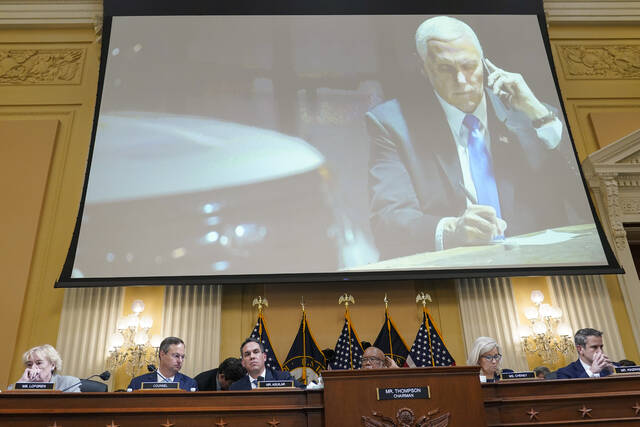Speaking to the Munich Security Conference in February, President Joe Biden proclaimed that “America is back.” It’s a pleasing sentiment, but our allies as well as our adversaries can be forgiven for taking a wait-and-see attitude.
America’s approach to the world has gyrated over the past two decades from George W. Bush’s assertive interventionism to Barack Obama’s lead-from-behind modesty. Donald Trump’s “America First” posture was a mixture of obsequiousness toward dictators and truculence toward traditional allies.
Biden attempted to reify the “America is Back” slogan by urging a unified G-7 position toward China. He hoped for a unanimous declaration condemning China’s use of forced labor, and while Canada, Britain and France were ready to sign on, others demurred. It seems likely that the Biden administration will continue to press allies on taking a hard line toward Beijing. He has repeatedly emphasized that confronting China is a defining challenge of his presidency. “This is a battle between the utility of democracies in the 21st century and autocracies,” he told reporters at his first news conference as president. “We’ve got to prove democracy works.”
America and other free nations have a chance to do something that would earn true admiration and respect from the rest of the world: donate free vaccines. As in trade, development and technology, we would be competing directly with China and Russia. Biden has pledged 500 million doses. It’s a start, but we’ve got to think bigger.
There are many goals that are extremely difficult to achieve in foreign policy. It’s tough to get Iran to stop funding terrorists. We’ve tried friendliness (Obama) and harsh sanctions (Trump). Iran remains Iran. North Korea is a disaster. We’ve tried strategic patience (Obama) and fawning friendliness (Trump). North Korea remains nuclear-armed. It’s difficult to try to reform countries in Central America so that their people will not be so desperate as to journey north. It’s hard to get nations to agree to joint action on climate change.
But vaccinating the world is something we can do. Is it expensive? Compared with what? The International Monetary Fund estimates that it would cost $50 billion to vaccinate 70% of the world’s population over the next 10 months. That amounts to just 0.13% of the combined GDPs of the G-7 nations. In Washington, $50 billion is what you find in the sofa cushions.
China and Russia are both offering vaccines to developing nations. But Russia is demanding quid pro quos. In Bolivia, for example, Russia began talks about rare-earth minerals in return for the Sputnik V vaccine. China donated the Sinovac vaccine to Cambodia and Laos … in return for backing China’s position in the South China Sea.
If the United States had nothing to gain from vaccinating the world except the satisfaction of benevolence, it would be well worth it. But our own self-interest would be served as well. As long as the virus spreads, it has opportunities to mutate. So far, the vaccines have proven effective against the known variants, but that may not last. If a more virulent and/or vaccine-resistant strain gets a foothold anywhere in the world, it will be knocking on our door before long.
A U.S.-led effort by wealthy nations to vaccinate the world would play to our strengths. Thanks in part to our openness to brilliant immigrants such as Kati Kariko, who developed mRNA techniques, our breakthroughs continue to dazzle.
Americans like to help. We may disagree vehemently about whether to withdraw from Afghanistan or rejoin the Paris Agreement, but most Americans will, I hope and expect, feel a sense of pride at leading the world to overcome this deadly plague, and doing so with graciousness and a servant’s heart.
Let’s do this. Let’s be “unsordid” again.








